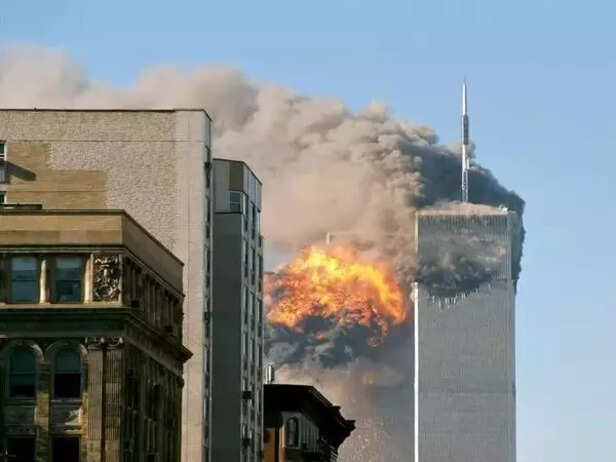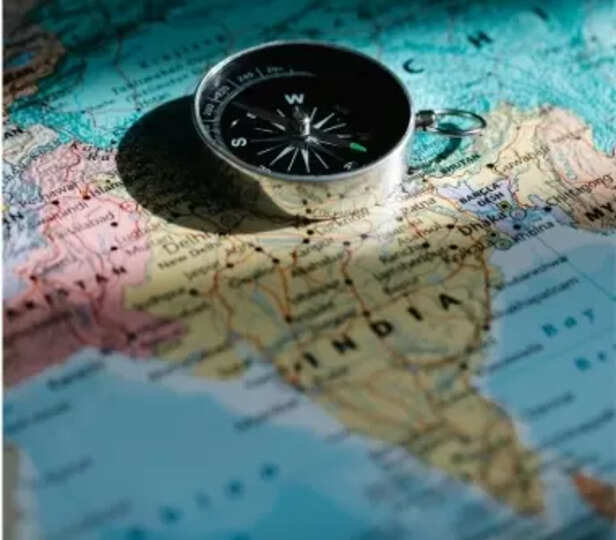USA's Problem Is World's Problem; World's Problem Is Not USA's Problem: Double Standards
Nidhi | Jun 09, 2025, 14:27 IST
( Image credit : Times Life Bureau, Timeslife )
When America faces a crisis, the entire world feels the impact — from wars to economic shocks and pandemics. Yet when global tragedies occur, the U.S. often stays silent or uninvolved. This article explores the double standards in U.S. foreign policy, examining how American problems become global emergencies, while the world’s problems rarely become America’s concern. Through events like 9/11, the Afghanistan war, and the Rwanda genocide, we reveal the imbalance in global responsibility and why nations are demanding a fairer, multipolar world order.
"Somewhere Europe has to grow out of the mindset that Europe’s problems are the world’s problems, but the world’s problems are not Europe’s problems."
— S. Jaishankar, External Affairs Minister of India
For too long, global crises have operated on an uneven scale — one in which the priorities, pain, and problems of powerful Western nations, especially the United States, are treated as global emergencies, while the suffering of the developing world is often met with indifference or delay. This asymmetry, as India’s External Affairs Minister S. Jaishankar has bluntly highlighted, is no longer sustainable in a world growing increasingly multipolar.
The statement — “USA’s problem is world’s problem; world’s problem is not USA’s problem” — is not a rhetorical jab. It is a summary of the lived experiences of countries that have been drawn into conflicts, crises, and economic collapses because of American decisions, while their own emergencies have barely moved the needle in Washington. Let us examine this pattern — historically, economically, and morally. 


Countries like India, Brazil, Indonesia, and South Africa no longer accept the old hierarchy of global concern. They are asserting themselves in international forums, calling out Western media bias and holding the U.S. accountable for its selective morality.
America has mastered the art of exporting its problems and importing the world’s silence. Whether it’s terrorism, finance, health, or environment, the U.S. has often framed its challenges as global and its responsibilities as optional. But that imbalance is being questioned, challenged, and gradually rebalanced.
"USA's problem is world's problem; world's problem is not USA's problem" is not just a critique — it’s a warning. The old order is fading, and a more balanced, more honest, and more humane world is trying to be born. If the United States wants to lead that world, it must first learn to listen to it.
Explore the latest trends and tips in Health & Fitness, Travel, Life Hacks, Fashion & Beauty, and Relationships at Times Life!
— S. Jaishankar, External Affairs Minister of India
For too long, global crises have operated on an uneven scale — one in which the priorities, pain, and problems of powerful Western nations, especially the United States, are treated as global emergencies, while the suffering of the developing world is often met with indifference or delay. This asymmetry, as India’s External Affairs Minister S. Jaishankar has bluntly highlighted, is no longer sustainable in a world growing increasingly multipolar.
The statement — “USA’s problem is world’s problem; world’s problem is not USA’s problem” — is not a rhetorical jab. It is a summary of the lived experiences of countries that have been drawn into conflicts, crises, and economic collapses because of American decisions, while their own emergencies have barely moved the needle in Washington. Let us examine this pattern — historically, economically, and morally.
1. How U.S. Problems Became Everyone’s Problems

United States_ Pentagon appeals court upholds plea deals of 9_11 plotters.
( Image credit : IANS )
9/11 and the Global War on Terror
- The September 11 attacks in 2001 were horrific — but the U.S. response turned a national tragedy into a planetary war. The invasion of Afghanistan triggered two decades of conflict involving over 50 nations. Later, the invasion of Iraq in 2003 — on false pretenses of WMDs — dragged the world into another devastating quagmire.
- These wars caused nearly a million deaths and displaced tens of millions of people. Global terrorism surged, new extremist groups were born, and entire regions fell into prolonged instability. America's war became the world’s chaos.
Afghanistan: Built, Broken, and Abandoned
- The roots of Afghanistan’s crisis go back to the Cold War. In the 1980s, the U.S. poured billions into arming Mujahideen fighters to defeat the Soviets. These fighters evolved into the Taliban and al-Qaeda. When the Soviets left, so did the U.S., leaving behind a power vacuum that collapsed the Afghan state.
- After 9/11, the U.S. returned for another 20 years of war. But it left again in 2021 — this time in haste, abandoning allies, women, and civil society to Taliban rule. Over 240,000 people died in this war, including more than 70,000 civilians. And yet, Afghanistan has vanished from American headlines, while the region still burns from the long-term damage.
2008 Financial Meltdown — Wall Street’s Crisis, Everyone’s Collapse
- What began as a housing crisis in the U.S. turned into a worldwide recession. The reckless lending and deregulation on Wall Street led to a global economic freeze. Jobs vanished in Asia. Growth collapsed in Africa. Even Europe was forced into austerity.
- Yet the architects of the crisis — American banks and hedge funds — were bailed out. Meanwhile, developing nations were told to “reform” their economies. Once again, the world paid for America’s mistakes.
COVID-19 and Vaccine Nationalism
- The U.S. was among the worst-hit nations during the COVID-19 pandemic. But while claiming global leadership, it also hoarded vaccines, blocked exports, and stockpiled more doses than its population needed. Even as low-income nations pleaded for access, the U.S. prioritized boosters and patents.
- COVAX, the global vaccine sharing initiative, struggled while American pharmaceutical companies made record profits. In a global health crisis, the message was clear: America comes first, even when the virus doesn’t respect borders.
2. When the World Cried, the U.S. Didn’t Hear

Bitcoins and U.s Dollar.
( Image credit : Pexels )
Rwanda 1994: Silence During Genocide
- In just 100 days, 800,000 Rwandans were slaughtered in one of the worst genocides in history. The U.S. knew what was happening. It had the intelligence, the satellite images, and the warnings. But it refused to intervene — or even call it a “genocide” in official UN meetings.
- Why? Because calling it genocide would have required action. So the U.S. chose silence — and the world watched a million people die without a single American soldier being deployed.
Syria: Airstrikes Without Accountability
- The U.S. intervened in Syria to fight ISIS and oppose the Assad regime. But it refused to commit to a full humanitarian response. While Europe dealt with millions of refugees, the U.S. accepted a fraction and continued its drone and missile campaigns.
- Civilians in Raqqa and Aleppo were bombed, displaced, or starved. Yet Syria remained a “proxy war” — a chessboard for great powers, where human lives became secondary to geopolitics.
Climate Change: America’s Emissions, Everyone’s Floods
- The U.S. is historically responsible for over 25% of global carbon emissions. Yet it has frequently delayed or diluted international climate commitments. It withdrew from the Paris Agreement under President Trump and still subsidizes fossil fuels.
- Meanwhile, rising seas threaten Pacific islands. Droughts destroy African crops. Himalayan glaciers melt. The U.S. lectures others on sustainability — while continuing to live far beyond the planet’s limits.
3. A Global South That Won’t Be Lectured Anymore

India
( Image credit : Pexels )
Emerging Powers Speak Up
- India’s S. Jaishankar has been at the forefront of this new diplomacy — refusing to apologize for buying oil from Russia, defending India’s sovereign decisions, and challenging the West’s “rules-based order” that applies only when convenient.
New Alliances, New Rules
- Platforms like BRICS, the African Union, and ASEAN are increasingly becoming forums where the Global South sets its own priorities. These nations are not rejecting the West — they’re simply refusing to be its background actors.
- A multipolar world is emerging. One where problems and compassion are shared more equally — and where one nation’s crisis doesn’t automatically become the planet’s headline.
One World, Two Realities — Until Now
"USA's problem is world's problem; world's problem is not USA's problem" is not just a critique — it’s a warning. The old order is fading, and a more balanced, more honest, and more humane world is trying to be born. If the United States wants to lead that world, it must first learn to listen to it.
Explore the latest trends and tips in Health & Fitness, Travel, Life Hacks, Fashion & Beauty, and Relationships at Times Life!
